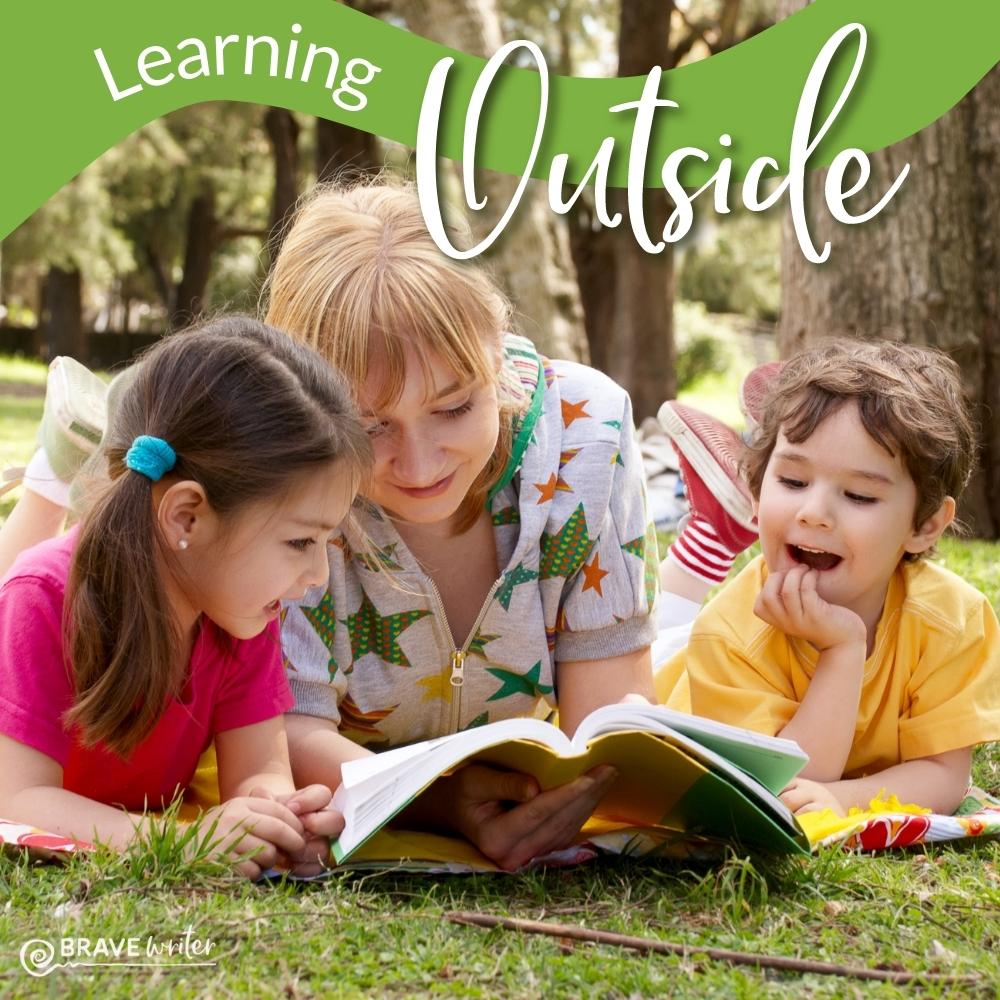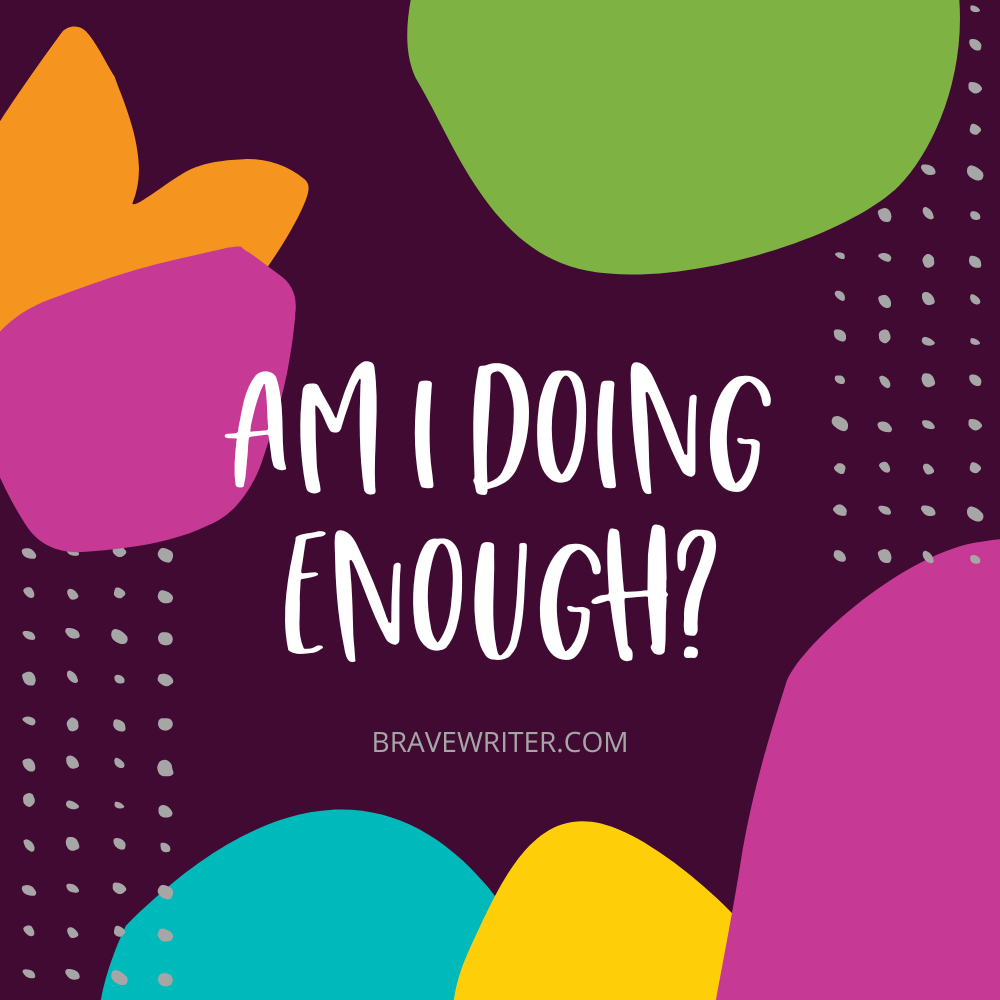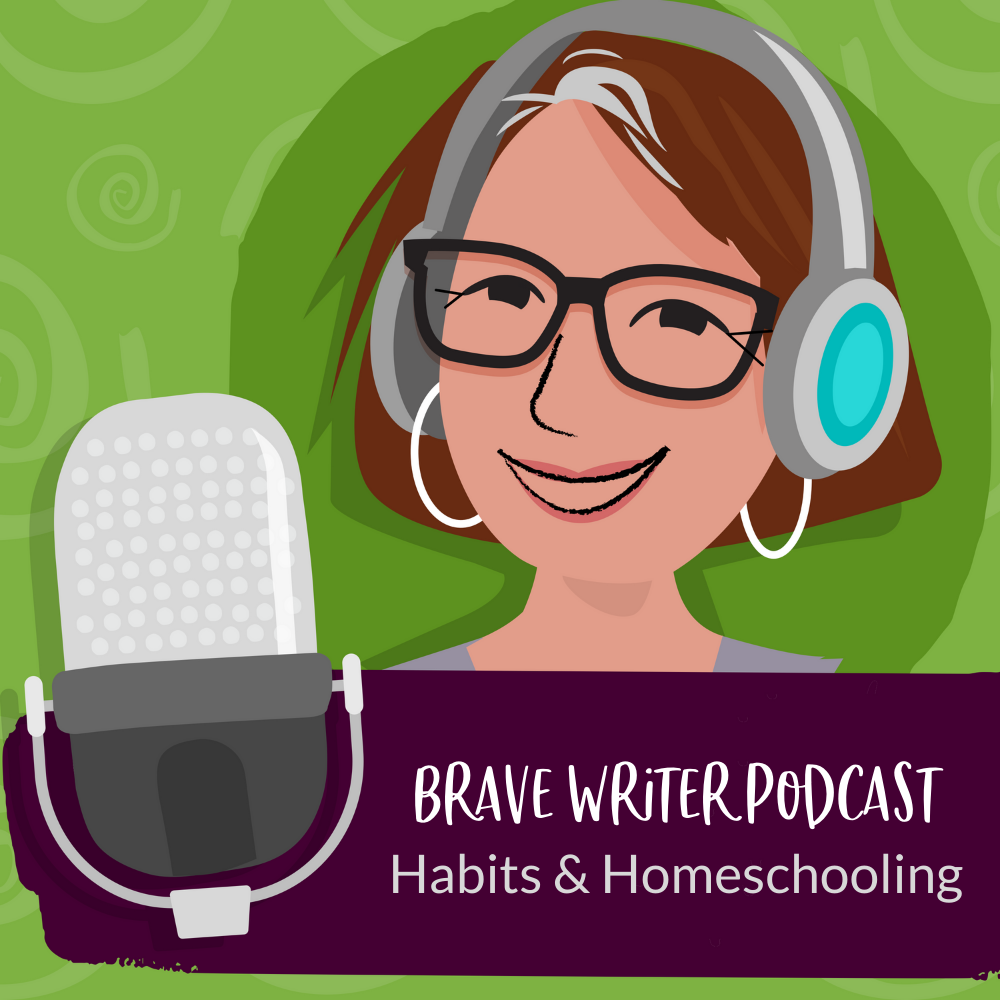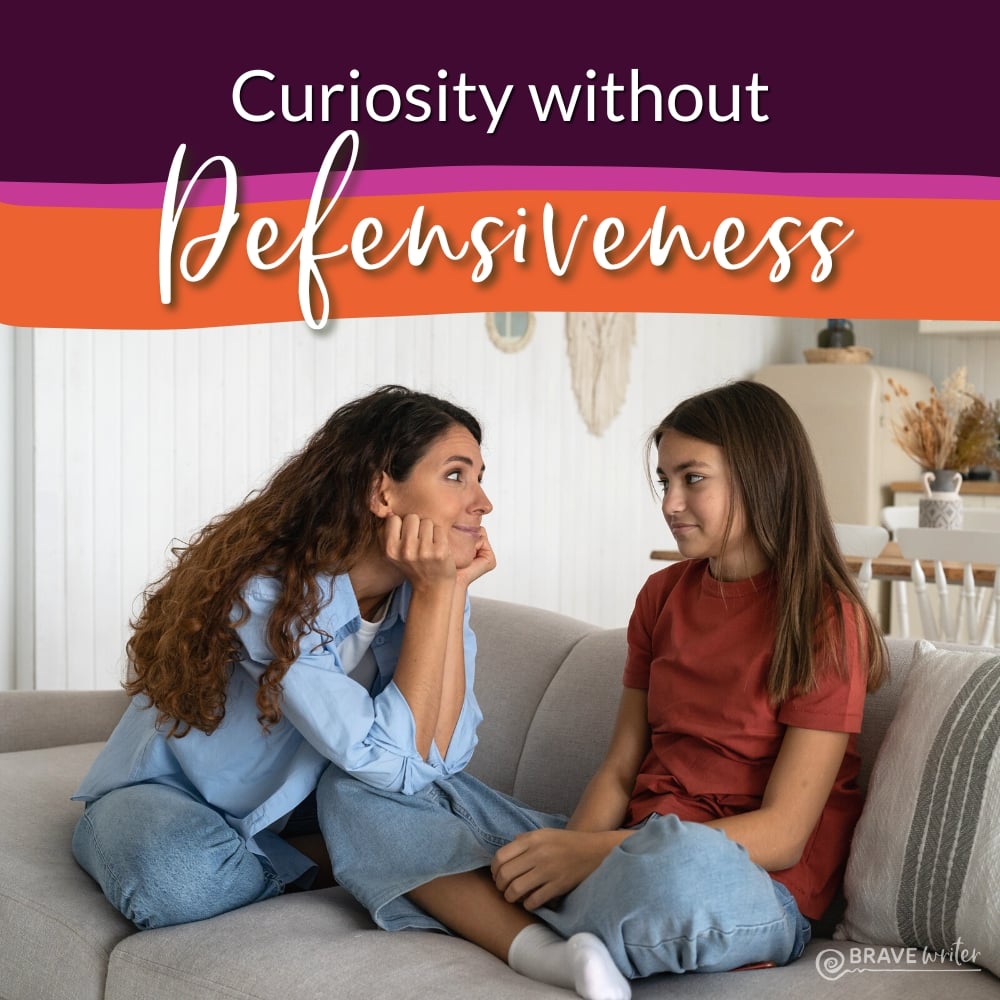
When it comes to writing, interacting with abstract concepts through physical activity and play is educational gold!
- Go on a letter or word hunt using the signs at a local park.
- Enjoy a bookish Big Juicy Conversation during a walk through the woods or city streets.
- Move and groove in the playground to punctuations’ directive drumbeat.
- Practice the art of recording descriptive details by observing birds in trees.
Brave Writer’s Mechanics and Literature programs naturally engage both body and mind, making it easy to take your learning outdoors.
Let’s see how!
Quill (ages 5-7)
Hop, skip, and jump your way into nurturing pre-literacy skills! The Quill introduces young learns to reading, writing, and math with engaging activities you can do over and over again.
If you are eager to take learning outside with lots of movement to make concepts stick, these handbooks will be of special interest:
- Wild Animals
- Transportation
- Buggy Bugs
- Spectacular Sports (available May 1)
Try this im-press-ive mark-making activity from the Rocks Rock Quill:
Cuneiform writing was developed in ancient Sumer in the early Bronze Age. People “wrote” by pressing wedge-shaped sticks into soft clay. The marks often represented an exchange of goods. Your child can make marks to practice letters or symbols while developing the fine motor skills necessary for writing!
Here’s what you do:
- Find a spot outdoors with a flat surface.
- Gather soft clay and a few tools to make marks.
- With your child, flatten a slab of clay with your hands or a rolling pin. (Tip: a rolling pin is another helpful tool that develops gross motor skills necessary for writing!)
- Invite your child to experiment with motions that work best. Get curious! Does it work to drag the pencil through the clay to make lines and squiggles? Is it easier to press the point into the clay, forming shapes out of dots?
- Join them with your own slab of clay.
- Press to flatten and make new marks for as long as your child is engaged.
Explore literature, grammar, and punctuation outdoors the Brave Writer way!
The Dart, Arrow, Boomerang, and Slingshot literature handbooks feature one novel per month and use weekly passages for copywork and dictation. They explore punctuation, grammar, spelling, literary devices, and literary analysis.
Try it prompts
Try It prompts, featured in every handbook, engage kids and teens with concepts through simple movement, discussion, and hands-on activities. Some are written to be enjoyed outdoors, while others could be easily modified for this purpose.
Explore the sampling of Try It activities below—take them outdoors!
Dart (ages 8–10)
This Try It from The Very, Very Far North Dart was made to be done outdoors!
What are the colors in your crayon box?
Have your child trot around the house to gather objects in their favorite colors. When the collection is assembled, brainstorm together to name these particular shades. Does your child prefer moss green or lime? Cherry red or scarlet? Playful and wacky names are encouraged: your palette could include unique shades like sourdough white or mouthwash green.
Next time you and your child take a walk, notice the colors in your own landscape. Together, invent descriptive names for the hues you encounter. Or if your child is a Minecraft fan, you can come up with a list of color words for each biome!
And remember: colorful writing utensils can make copywork and dictation more engaging! You may want to collect a bunch of blue pens, markers, and crayons from around the house and let your child write the painter’s shades of blue in ink that matches their description.
Arrow (ages 11-12)
Here’s an engaging Try It from Harriet the Spy Arrow:
Personify it!
Grab paper, a clipboard, and a pen and take this activity outside.
Look for an object you want to describe. Let personification help you get the job done.
Tips for success:
Make a list of objects that are familiar to you—modify this list to feature objects outdoors.
- dog bowl
- guitar
- sheet of paper
- shoe
- glue bottle
- pencil sharpener
Make a second list of human characteristics.
- hard worker
- walking
- helpful
- joyful
- creative
- performing
- cranky
- exhausted
Connect them.
- The dog’s bowl worked hard to keep its owner nourished.
- The guitar joyfully performed its song for guests at the party.
- Her shoes hit the pavement happily on their way to the movie theatre.
Boomerang (ages 13–14)
The Beast Player Boomerang is bursting with nature connections teens can apply to their own writing:
Nature Writing
Take a walk and pause for a moment anywhere you choose—or gaze out a window, if you like. Capture one aspect of life outside. It can be as small as a raindrop on a leaf or as expansive as clouds in the sky. Write a paragraph or perhaps a haiku poem about your observations.
The benefits of outdoor learning.
The science is conclusive: outdoor learning is where it’s at! Research shows that getting outside is a healthy lifestyle choice with measurable academic and emotional benefits that include:
- improved mental health
- stronger academic performance
- increase in focus
- fewer disciplinary challenges
Bonus: an outdoor “classroom” supports individualized learning styles of all kinds. So, if the wild outdoors is lately summoning your family, tempting you away from your indoor workspaces, perfect! Heed its call and enjoy!
Looking for books begging to be read outdoors?
Darts
Arrows
- The Borrowers
- The Boy Who Saved Baseball
- Leon Garfield’s Shakespeare Stories
- The Vaderbeekers and the Hidden Garden
Boomerangs & Slingshots
Ready for an online class?
Natural Jounaling! Enroll the entire family for ONE price. Write, hike, and draw together!
Brave Learner Home Members!
Check out the One Thing Challenge library for ready-made outdoor activities!

























